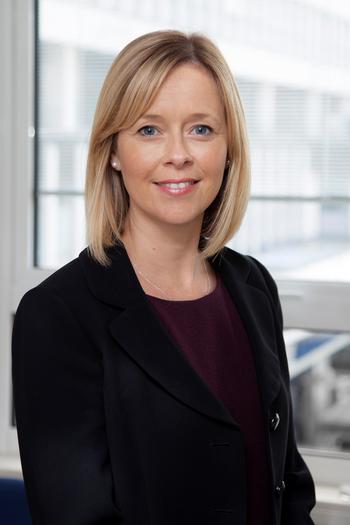To mark International Women’s Day, Kate Lancaster, CEO, Royal College of Obstetricians and Gynaecologists, highlights the stigma that still prevents women from accessing essential treatment.
 Kate Lancaster
Kate Lancaster
What do we mean by stigma?
“Stigma is a social process through which people are labelled. Often, it results in stereotyping or shaming and discrimination. For women in healthcare, it can be anything from living with a mental illness, to living with HIV, to the areas that we particularly focus on, around Obstetrics and Gynaecology. It exists from menstruation through to menopause and beyond. At some point in their lives, many women will have experienced some form of discrimination and stigma because of their health or the healthcare that they needed.
That is why we are marking this International Women’s Day by joining together with the other organisations working within our Women’s Health Hub in Union Street, London, to highlight the issue of stigma and the harm it does to women’s health and healthcare, exploring some of these issues through a webinar we are hosting.
What impact does stigma have?
“Stigma and shame can deter women from seeking the care that they need, for fear of embarrassment or not being taken seriously. That then increases the stress around their health concerns and potentially lowers self-esteem.
One key to addressing the issue of stigma is through information and education about women's health. If women are empowered through knowledge, they can advocate on their own behalf, or on behalf of other women. This means, essentially, that they can begin to challenge poor care or harmful attitudes among society.
What is RCOG doing to combat stigma in women’s health?
The RCOG's core mission is to improve the health of women and girls throughout the globe. We do that through the expertise of our members and our fellows across the world. Tackling stigma is a really important element of our mission, we want to make sure that all women are able to access the highest standards of care without fear or judgement.
In the UK, women are waiting longer than ever for their gynaecological care. Our analysis shows that gynaecology waiting lists have grown by more than 60% since the start of the pandemic. Our report on this, ‘Left for too long,’ highlights the impact these delays have on the half a million women waiting for a range of treatments – for example, some are unable to work, or develop other conditions as a result of the delay. For many women this means they are living with extreme symptoms like heavy menstrual bleeding, acute pain and incontinence for far longer than they should - impacting their mental health, and their ability to take part in work or see their friends. That’s unacceptable.
We've recently launched a campaign about pelvic floor health. This is something that is rarely talked about, despite how important it is for women to maintain a healthy pelvic floor. Our survey of 2,000 women in the UK found that one in five didn't seek help with the symptoms of their pelvic floor dysfunction because they were too embarrassed to do so. That is stigma in action. No one should be suffering in silence, and we hope that by shining a light on this area, we can encourage women to seek the support that they need.
As part of our work to remove the stigma around abortion care in the UK, we have lobbied for safe access zones around abortion clinics, so that women can access these services without being harassed and intimidated by protestors.
One of our key UK policy successes has been the continuation of telemedicine for early medical abortion. Prior to the pandemic, services were provided face to face. When the lockdowns came in, thanks to the NHS, telemedicine abortion services were put in place allowing women across the country to access the service from home. It proved very successful, and meant vulnerable women were able to access the service confidentially. Post-COVID, we worked with parliamentarians to get this into legislation, so it's here to stay.
Internationally, our Making Abortion Safe programme has been very successful in recruiting champions who work on our behalf to address the barriers to safe abortion and/or post-abortion care for women and girls.
Women’s gynaecological health is neglected around the world. Investment is often inadequate, with millions of women unable to access the services they need and achieve their right to health. In response to this we're working with partners to improve the gynaecological care available to women and girls around the world. For example, in Bangladesh, we are delivering training for nurses and doctors with a local partner, the Obstetrical and Gynaecological Society of Bangladesh, and the Government of Bangladesh to promote the rollout of gynaecological training across the country.
What progress do you hope to see by International Women's Day next year?
Removing stigma is a process that happens over a period of time. Work around Menopause is an example of this. In recent years, a light has been shone on it in a way that had never happened before. You make it okay to talk about it, and then the stigma gradually lifts. One of the charities that works with us, Wellbeing of Women, has got many large employers to sign up to their Menopause Workforce Pledge, to improve working conditions for women experiencing the menopause.
Similarly, I would hope that our work helps shift the dial on a range of topics that we're covering over the next 12 months, and particularly that women begin to gain access to the information that they need.

